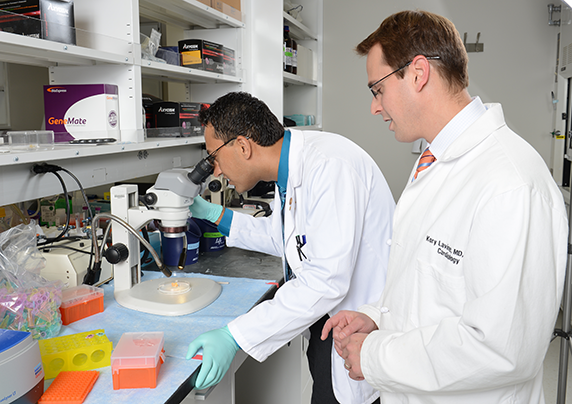As a WashU MSTP student, you’ll receive excellent training in both clinical medicine and research. Excitement about science abounds at every level of the institution, with faculty, staff and students alike inspiring one another to solve problems. Here, you’ll be part of research and clinical care that make a difference.

The MSTP combines elements of the MD and PhD curricula to give you an individualized learning experience. Early on, you’ll meet with the MSTP director to craft a program of study tailored to your background and goals. This individualized advising, both formal and informal, continues through graduation.
The integrated curriculum is evident in the first year when you take the MSTP Thread course. In this course, faculty present historical lectures on the scientific discoveries that form the basis of knowledge taught in the parallel Gateway (MD) lectures.
Before matriculation, you’ll receive coaching on thesis mentor selection and complete a summer research rotation. More lab rotations occur during and immediately after Phase One of the Gateway (MD) Curriculum. This exposure to a variety of research areas and laboratory environments will help you select a thesis lab. After completing Gateway’s Phase One, you’ll enter the PhD phase of training, spending three to five years in dissertation research. During this time, you may participate in clinical mentorships to maintain clinical skills and experience various medical specialties. After your thesis defense, you’ll transition back to the Gateway curriculum to complete clinical training, then join our other program alumni in obtaining highly competitive residencies.
This course of study is typical for most MSTP students. Other options include starting the research phase after completing clinical clerkships. Throughout training, MSTP students at all levels take part in seminars, journal clubs, retreats and social events. The typical student completes the program in eight years.